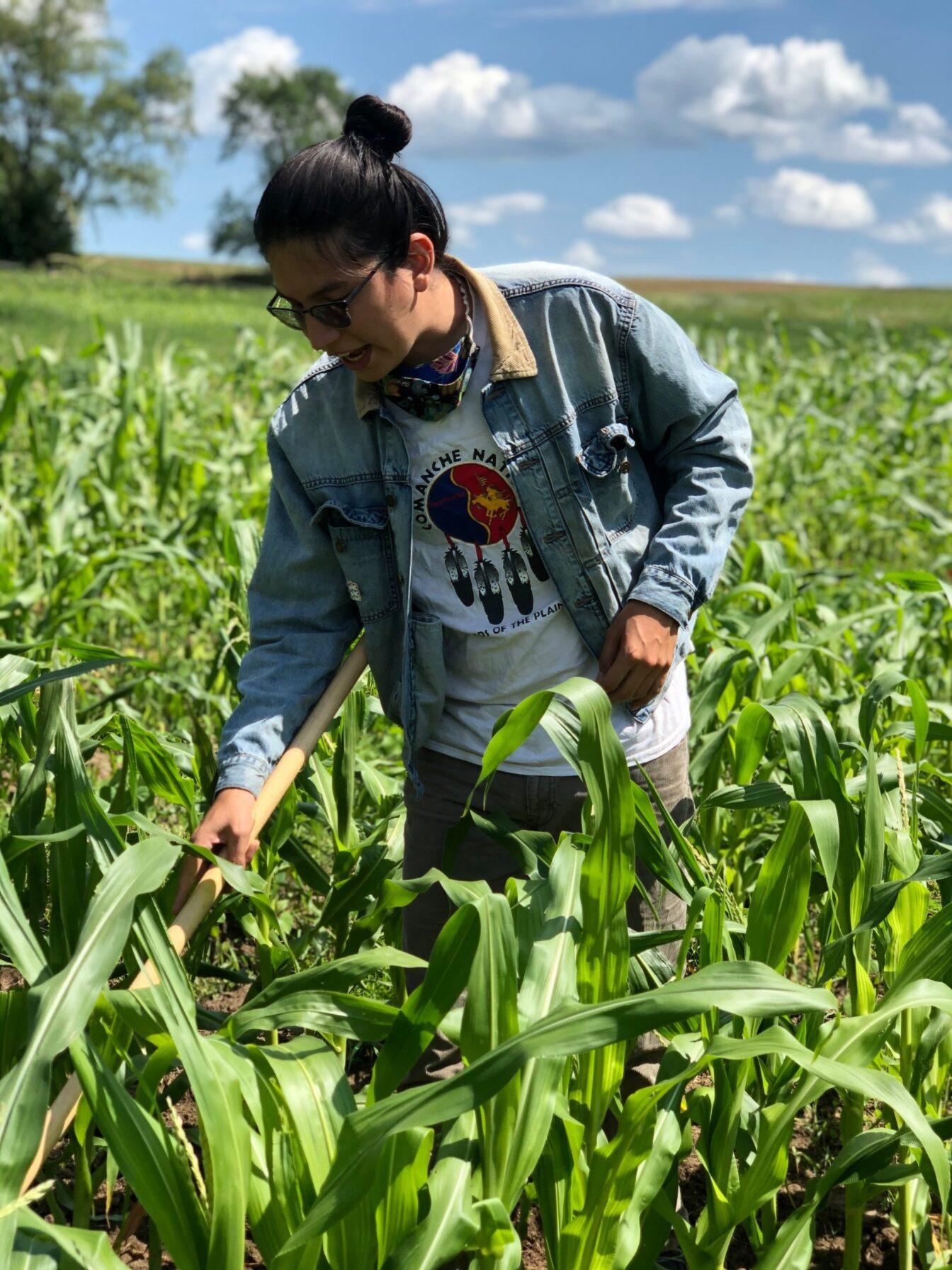The Center for Integrated Agricultural Systems studies the relationship between food systems and agriculture. Through partnerships with native communities, CIAS helps strengthen their food sovereignty.
“We try to pull together diverse teams … that include government, academia, businesses, and communities and citizens to figure out what the research questions are, and then how to approach those research questions to understand how to deal with the problem,” Miller said.
For example, a freshman can enjoy their meal from Four Lakes without needing to know whether the ingredients are locally sourced or from a national supplier.
But, where would they turn to if they were looking for food from this area?
“[If] you want to go and have some wild rice, maybe you could find some hominy, corn, some pozole somewhere, but you’re not going to go find Indigenous food anywhere in Madison,” Great Lakes Indigenous Law Center Outreach Program Manager Dan Cornelius said.
This is why Cornelius said food sovereignty is important. Specifically, supporting the expansion of food sovereignty within native communities gives them the ability to feed themselves.
Tribal sovereignty is also about the ability of the tribe to be in charge of their food system, Miller said.
For native communities, this means having some control over what the food system has access to, including fields, forests, lakes and rivers, Cornelius said.
Miller said food systems are where the actors in a food network come into play. Food systems heavily rely on trust, and without trusting relationships, the functioning of food systems suffers.
“The food system consists of many different layers, and when we all work together, it strengthens the entire system,” Intertribal Food Systems Coordinator and Menominee Indian Kaya DeerInWater said in an email statement to The Badger Herald.
One of Miller’s current projects includes recreating food trade routes with a group of tribal nations in Wisconsin. Over the course of the pandemic and this past summer, the project has provided food to tribal elders of the 11 tribes in Wisconsin with its Tribal Elder Food Box Program, Miller said.
It’s from university partnerships with native tribes and organizations and CIAS research that make solving complex systems like food systems possible, Miller said.
DeerInWater said partnerships through the UW System — including the School of Human Ecology, CIAS and the College of Agriculture and Life Sciences — have a significant effect on amplifying the success of tribal food system work.
“Partnerships are the key to the success of projects like TEFBP [Tribal Elder Food Box program] because food systems are inherently dynamic, and each of our partners brings unique strengths to the table,” DeerInWater said.
And, because of those partnerships, DeerInWater said he is immensely grateful.
The next step for the Tribal Elder Food Box program is expanding the idea of trade systems to tribes across the Great Lakes region — Wisconsin, Minnesota, Michigan and even a bit of Illinois, Miller said.
Projects like the Tribal Elder Food Box Program and others that aim to address tribal food sovereignty are also important for learning how to eat products from this region, Miller said.
“The idea is that Native tribes here still know how to eat products from this region — they’re looking at wild rice, buffalo and Indigenous corn that was developed for here,” Miller said. “And I think it’s important to learn how to eat where you live, how to change your diet to fit the place where you live rather than try to fit the place to your diet.”
When disruptions like the pandemic and climate change occur, they start affecting the food system and food supply chains. For example, during the pandemic it was hard to find flour, pork and more recently, eggs, Miller said.
This is why, Miller said, people should know of many different places to get food, rather than relying on factories to be the sole providers.
As climate change continues to cause more food supply disruptions, stronger communication within any system — not just the food system — becomes all the more important.
Food is a right, Miller said, so the food supply networks must reach all people.
While Cornelius said UW could be doing more to include Indigenous ingredients and recipes in the campus food service, it does provide an occasional Indigenous catering menu. Students can try some of this food from the 1491 pop-up at the 1849 Grill in Four Lakes Market.
“When they do, you … [may] even [see] my friend Yousef Andrella, he’s a chef there,” Cornelius said. “He had gotten them [UW Housing] to print off a little sign that they can cover up the 1849 with 1491. Then you know if you see 1491 there, go eat at that station for that meal because it’s going to be amazing food.”


